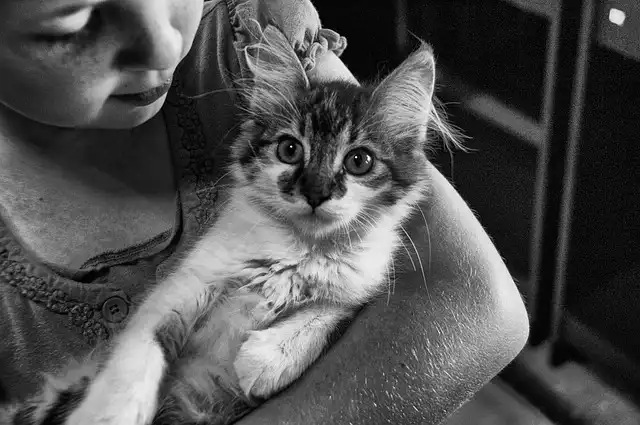Childhood Cat Exposure Linked to Doubled Risk of Mental Disorders
- Normal Liver Cells Found to Promote Cancer Metastasis to the Liver
- Nearly 80% Complete Remission: Breakthrough in ADC Anti-Tumor Treatment
- Vaccination Against Common Diseases May Prevent Dementia!
- New Alzheimer’s Disease (AD) Diagnosis and Staging Criteria
- Breakthrough in Alzheimer’s Disease: New Nasal Spray Halts Cognitive Decline by Targeting Toxic Protein
- Can the Tap Water at the Paris Olympics be Drunk Directly?
Childhood Cat Exposure Linked to Doubled Risk of Mental Disorders
- Should China be held legally responsible for the US’s $18 trillion COVID losses?
- CT Radiation Exposure Linked to Blood Cancer in Children and Adolescents
- FDA has mandated a top-level black box warning for all marketed CAR-T therapies
- Can people with high blood pressure eat peanuts?
- What is the difference between dopamine and dobutamine?
- How long can the patient live after heart stent surgery?
Childhood Cat Exposure Linked to Doubled Risk of Mental Disorders
Living with cats during childhood is associated with a doubled risk of mental disorders, according to a comprehensive meta-analysis of 17 studies spanning 44 years across 11 countries.
Scientists from the Queensland Mental Health Research Center analyzed the results of these international studies and found that even after adjusting for confounding factors, the estimated risk of developing mental disorders, particularly schizophrenia, was 2.24 times higher for those who had cats as companions during childhood compared to those without cats at home.

While there isn’t a specific age identified as the most concerning for cat exposure, researchers believe the risk window extends throughout childhood. Studies from Finland suggest a connection between mental disorders and exposure in children under 7, while research from the UK indicates a link with children aged 4 to 10.
However, researchers emphasize that more work needs to be done to understand this association and the many factors that could potentially impact the diagnosis of schizophrenia-related disorders later in life before making any drastic conclusions.
The identified risk factor, according to scientists, is the protozoan parasite Toxoplasma gondii carried by house cats. Although this parasite can also spread through undercooked meat and contaminated water, it is frequently transmitted through the eggs found in cat feces. Over the years, it has been associated with changes in the central nervous system (CNS) and brain function.
This parasite can remain hidden in the human host for a lifetime, and healthy individuals are unlikely to show symptoms as the immune system keeps the parasite in check. In fact, an estimated 15% of Americans are thought to have been infected with Toxoplasma gondii.
Pregnant women and more vulnerable populations, including children, face greater risks. Toxoplasma infection is a leading cause of blindness in newborns worldwide and is also linked to complications such as seizures and vision loss. Recently, this parasite has also been associated with frailty in old age and peculiar risky behaviors.
While it may be easy to attribute this complex infectious disease to cats, they are merely hosts for this opportunistic single-celled organism. Scientists believe that the cat’s digestive system provides a fertile environment for the Toxoplasma gondii because cats lack an enzyme called δ-6-desaturase, which forms a biochemical barrier against the parasite’s reproductive goals in other mammals.
In most cases, cats are not troubled by the parasite and do not show signs of illness, but they can excrete millions of egg cells (oocysts) in their feces, which eventually end up on their paws and fur, making contact with human hands. While the parasite cannot complete its lifecycle within the human host, its tiny form allows it to evade the immune system, stealthily crossing the blood-brain barrier to cause damage in the central nervous system and the brain.
Although there is much work to be done in understanding the exact reasons why certain children are more prone to specific mental illnesses in adulthood, researchers advise children with cats to be mindful of the importance of good hygiene practices.
The researchers state, “Our review provides support for the link between cat ownership and psychiatric disorders. The field needs to generate new candidate environmental risk factors, especially those that may be modifiable. In this case, more high-quality research is needed on a large, representative sample to better understand the role of cat ownership as a potential risk-modifying factor for psychiatric disorders.”
This study was published in the journal “Schizophrenia Bulletin.”
Childhood Cat Exposure Linked to Doubled Risk of Mental Disorders
(source:internet, reference only)
Disclaimer of medicaltrend.org
Important Note: The information provided is for informational purposes only and should not be considered as medical advice.



